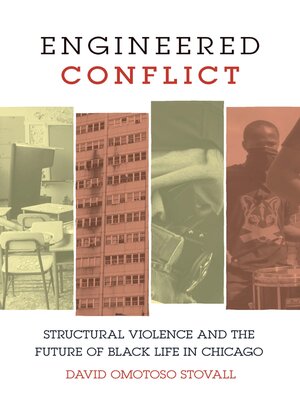Engineered Conflict
ebook ∣ Structural Violence and the Future of Black Life in Chicago
By David Omotoso Stovall

Sign up to save your library
With an OverDrive account, you can save your favorite libraries for at-a-glance information about availability. Find out more about OverDrive accounts.
Find this title in Libby, the library reading app by OverDrive.



Search for a digital library with this title
Title found at these libraries:
| Library Name | Distance |
|---|---|
| Loading... |
A hard-hitting exploration of how state policy displaces and isolates Black communities and how collective resistance creates spaces for working-class people of color to identify the true cause of conflict as capitalism and white supremacy
Marginalized communities often become understandably preoccupied with a city's structured attempt to deem them disposable, making it difficult to see people experiencing the same suffering as potential comrades in struggle. Enemies are manufactured as the result of continued displacement, hyper-segregation, and dispossession. Under these impossible circumstances people are often quicker to punch each other before they identify the enemy as white supremacy and capitalism, creating a society where conflict is engineered.
Examining the long fight of Black people in Chicago to claim their humanity and thrive in a city while facing school closings, the destruction of public housing and oppressive law enforcement, Stovall argues that marginalized communities face unique structural challenges while being blamed for interpersonal conflict and labeled "violent" and deemed disposable. With a novel approach to the question of how state-sanctioned violence and abandonment impacts low-income communities, Engineered Conflict uses examples from Chicago's recent history to shed light on the politics of disposability through housing instability, criminalization, and school closures. Looking at all three phenomena together allows readers to see how state policies designate some neighborhoods as unviable, where disinvestment furthers a rationale to contain members of these communities.
Looking at the many ways Black communities have resisted state violence and the work of local organizations to address marginalization, Engineered Conflict calls for a powerful movement against the displacement, disinvestment, and disposability of Chicago's Black population.







